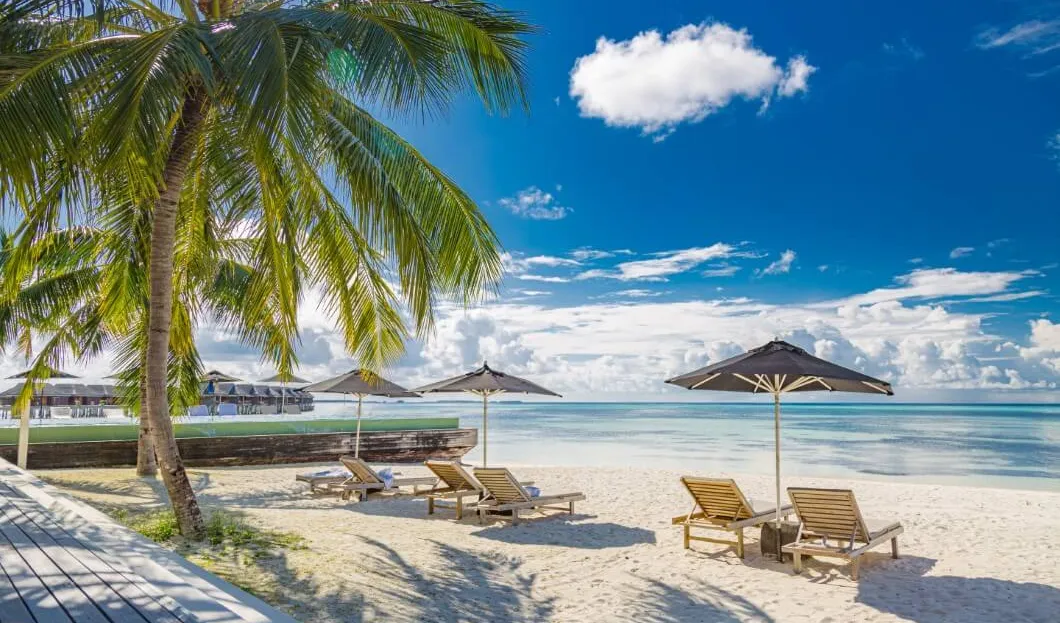
With few to no coronavirus cases, the main destinations in the Caribbean are getting ready to restart international tourism activity.
While the American continent has now become the epicenter of the COVID-19 pandemic, with the United States and Brazil leading the number of cases, some countries on the Caribbean islands - where tourist activity is essential to the local economy - have declared themselves coronavirus-free, and prepare to reopen borders to welcome international tourism.
According to the latest figures from international coalition EndCoronavirus (ECV), only the Caribbean (Bahamas, Barbados, Belize, Cuba, Jamaica, and Trinidad and Tobago) and Uruguay are winning the battle against COVID-19 in America.
Under exhaustive controls and health and safety protocols, many Caribbean countries have already announced the dates when they are reopening to tourism, following a survey of the measures taken by the main tourist spots in the midst of the pandemic, from Jamaica to the Dominican Republic.
Bahamas
The Government of the Bahamas announced that it will reopen to international tourism on July 1, and stated that all foreign visitors must show negative COVID-19 viral test in order to enter the country.
The Bahamas Ministry of Tourism and Aviation noted that the archipelago is preparing for the second phase of the Tourism Preparation and Recovery Plan, when international travel will resume under strict sanitary guidelines. In this phase, hotels and properties marketed by companies like Airbnb will also resume activities.
Once at the destination, travelers must follow the “healthy travelers’ campaign” which includes measures such as social distancing, hand washing and other sanitary measures. The country received 19.23% of its GDP from tourism, but that could have been affected by Hurricane Dorian in 2019.
Belize
Although there’s no confirmed date, the country continues to prepare for the reopening of international tourism and has officially released its new operating protocols for hotels and restaurants.
The Belize Tourism Board also presented a nine-point program that focuses on improving hotel and restaurant cleaning practices, social interactions, workplace policies and standard operating procedures, while ensuring minimal impact in guest experience.
The program also includes the installation of hygiene and disinfection stations throughout the property, compliance with social distancing, and the use of face masks in public spaces, among other points. The country gets 14.95% of its GDP from tourism.
Jamaica
On June 15, Jamaica reopened its borders for international travelers. To do this, the country announced an extensive set of protocols that cover all stages of the visitor’s trip: from planning to execution, as well as health exams before and after entering the country.
The Tourism Office of the Caribbean country reported that all visitors arriving in the country will undergo the body temperature and symptoms checks. If the temperature is high, additional checks will follow. Likewise, anyone showing COVID-19 symptoms or illness will be quarantined for 14 days.
Tourism is Jamaica’s largest economic engine with over 130,000 workers. The industry also affects an additional 120,000 jobs in other sectors, according to official data.
Aruba
Aruba, off the coast of Venezuela, declared itself a COVID-19 free destination just a few weeks ago, when the last infected patient recovered. In total, the island had just over 100 cases.
Like Jamaica, the government of the Dutch island opened borders on June 15, although gradually. First, borders were opened for residents of Bonaire and Curaçao, and starting from July, they will do so with travelers from other destinations.
Visitors must submit a negative coronavirus test to enter the island within 3 days prior to arrival. The other option is to pay in advance for the test and have it upon arrival at the airport, but this will mean staying quarantined until the negative result is confirmed.
The island gets 27.64% of its GDP from tourism. Its July tourism numbers are expected to be approximately 20% of what it had in July 2019.
Dominican Republic
The Ministry of Tourism of the Dominican Republic confirmed that the country will start welcoming international tourists from July 1, complying with international recommendations on hygiene, sanitation and social distancing that will be enforced in hotels, airports, restaurants, and shops.
“The moment visitors arrive in our country, they will find that the measures implemented guarantee a safe and pleasant experience so that they can enjoy the attractions that have made us the main tourist destination in the Caribbean,” said Tourism Minister Francisco Javier García.
Santo Domingo and Punta Cana, the main places in the country, “are reinforcing their efforts as safe territories.”
Antigua and Barbuda
Antigua and Barbuda were one of the first destinations in the Caribbean to restart the tourism and hotel industry on June 1, although with very limited capacity and strict sanitary protocols.
Travelers arriving in the country will be required to present a negative COVID-19 test taken 2 days before arrival, wear face masks in public, and fill out a health declaration form. The country receives 13.09% of its GDP from tourism.
Turks and Caicos Islands
The famous Turks and Caicos Islands, located at the southern tip of the Bahamas archipelago, are ready to revive the tourism industry, the islands’ main economic activity. The opening will be on July 22.









